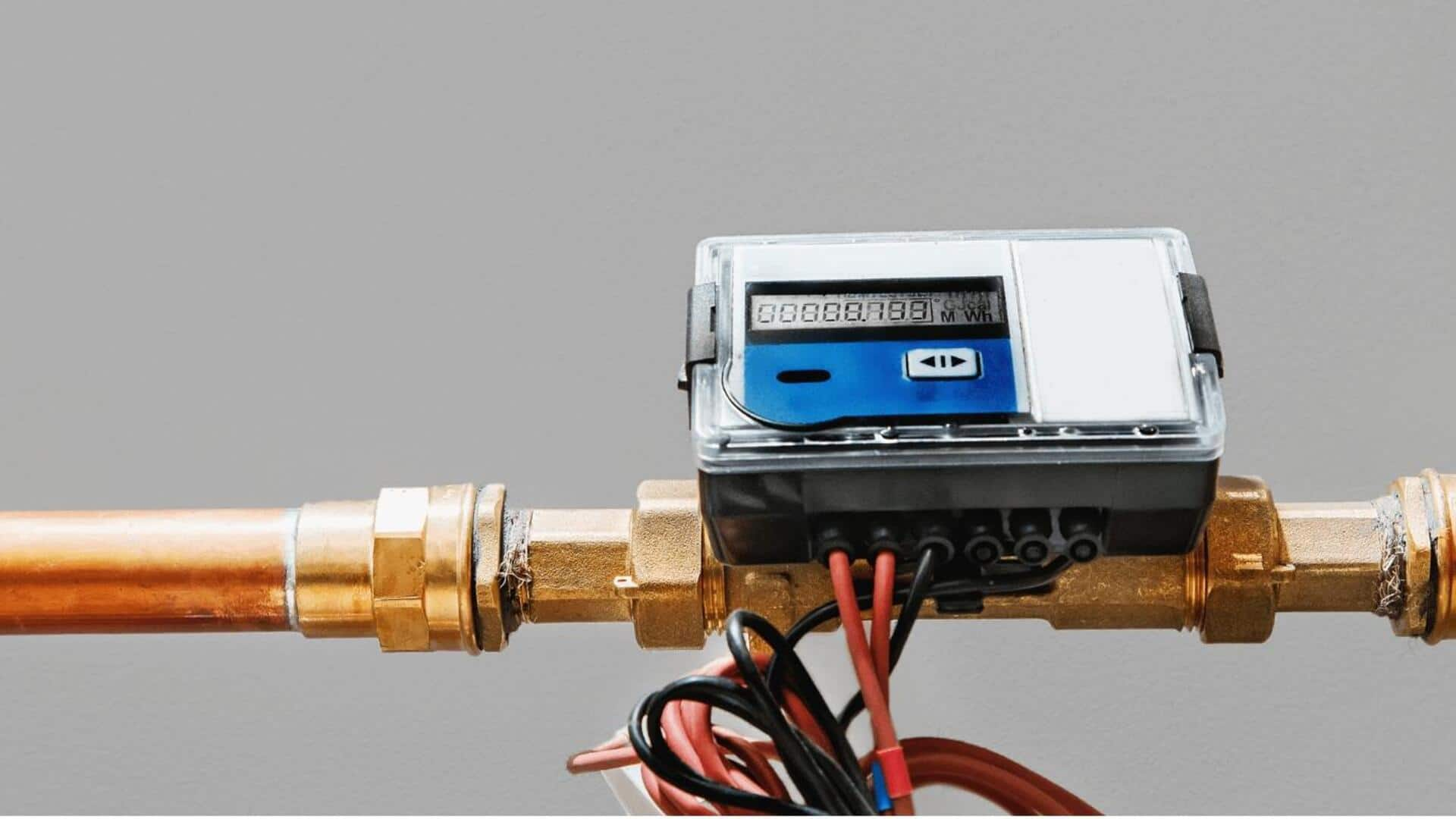
You will soon get AI-enabled smart water meters in Bengaluru
What's the story
The Bangalore Water Supply and Sewerage Board (BWSSB) will soon introduce artificial intelligence (AI)-enabled smart water meters.
The move is aimed at bringing down unaccounted-for water (UFW) levels and minimizing revenue losses.
UFW is the difference between the total water supplied by BWSSB and the water billed to customers.
The financial impact of UFW is a major concern worldwide.
Pilot phase
AI meters to be installed for commercial users initially
The first phase of these AI-enabled smart water meters will be rolled out for commercial users only.
BWSSB Chairman V Ram Prasath Manohar said almost 41% of the Cauvery water supplied to Bengaluru is used by some 10% of commercial connections.
He stressed that putting smart meters for these users will curb revenue leakage and save more money for the board.
Project details
BWSSB's plan for 1st phase of smart meter project
In the first phase of this project, BWSSB intends to install and monitor 2,000 smart water meters for bulk users under a Public-Private Partnership (PPP) model.
If successful, the project will be expanded to around 98,000 meters across Bengaluru within the existing District Metering Areas (DMAs).
This step is part of a broader strategy to modernize metering infrastructure and reduce operational inefficiencies.
Meter issues
Limitations of current mechanical meters
Currently, BWSSB caters to some 10.9 lakh consumers with 100% metering at the consumer end.
Over the years, the board has moved from single-jet water meters to multi-jet Class-B meters.
However, these mechanical meters come with certain limitations that compromise their accuracy, particularly where intermittent water supply is concerned.
An official noted that when water flow is beneath the minimum threshold, these meters fail to record accurate data leading to commercial losses.
Data accuracy
Smart meters to provide real-time data on water consumption
The new AI-enabled smart meters will offer real-time data on water consumption, and detect anomalies such as leakages or abnormal usage patterns. This will help resolve disputes efficiently.
They can also send data both ways, enabling continuous monitoring and data analysis.
Due to challenges with mechanical meters like Automated Meter Reading (AMR) and Advanced Metering Infrastructure (AMI), BWSSB is now looking at digital ultrasonic or electromagnetic flow meters for their accuracy at low flow rates.
Rollout plan
BWSSB's plan to roll out AI-enabled smart meters
BWSSB wants to roll out AI-enabled smart meters in phases, starting with some 2,000 bulk users in Phase 1.
This will comprise high-rise buildings, partially non-domestic (PND) consumers, and large water users.
If Phase 1 proves to be successful, Phase 2 will be expanded to cover some 98,000 meters citywide.
These smart meters are tipped to enhance water consumption data accuracy, reduce commercial losses and improve overall water management in the city.